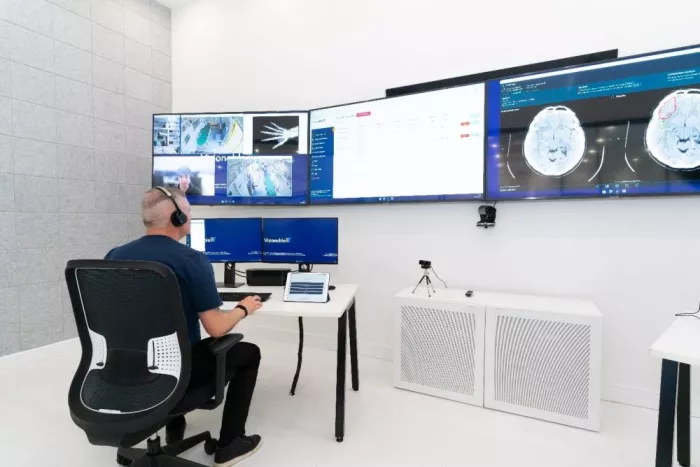Clinical Mental Health Counseling stands as a critical and evolving profession within the broader field of mental health. Rooted in a commitment to supporting individuals facing psychological challenges, clinical mental health counselors play a vital role in fostering mental well-being. In this comprehensive exploration, we delve into the intricacies of clinical mental health counseling, examining its definition, scope, key responsibilities, and the essential role it plays in helping individuals navigate the complexities of their mental health.
Defining Clinical Mental Health Counseling
The Core Purpose
At its core, clinical mental health counseling is a specialized form of counseling that focuses on helping individuals cope with emotional, psychological, and interpersonal challenges. These professionals, known as clinical mental health counselors, possess advanced training and expertise to provide therapeutic interventions that address a wide range of mental health issues. The emphasis is not only on symptom relief but also on promoting overall well-being and empowering individuals to lead fulfilling lives.
Scope of Practice
The scope of practice for clinical mental health counseling encompasses various aspects of mental health and well-being. Counselors in this field work with individuals, couples, families, and groups to address issues such as anxiety, depression, trauma, relationship difficulties, and life transitions. The goal is to facilitate personal growth, enhance coping mechanisms, and empower clients to navigate the complexities of their emotional and mental landscape.
The Educational Journey: Becoming a Clinical Mental Health Counselor
Academic Foundation
Becoming a clinical mental health counselor requires a solid academic foundation. Most individuals in this field hold master’s degrees in clinical mental health counseling or a related discipline. The curriculum typically covers a range of topics, including counseling theories, assessment and diagnosis, ethics, multicultural counseling, and specific therapeutic interventions. Rigorous training ensures that future clinical mental health counselors are well-equipped to understand and address the diverse needs of their clients.
Supervised Clinical Experience
In addition to academic coursework, supervised clinical experience is a fundamental component of the educational journey. Clinical mental health counseling programs often include practicum and internship experiences, where students work under the guidance of licensed professionals to apply theoretical knowledge in real-world settings. These hands-on experiences help future counselors develop practical skills, refine their therapeutic approach, and navigate the complexities of client interactions.
Key Components of Clinical Mental Health Counseling
Assessment and Diagnosis
One of the key responsibilities of clinical mental health counselors is the assessment and diagnosis of mental health conditions. Through careful evaluation and collaboration with clients, counselors aim to understand the nature and severity of emotional and psychological challenges. This process involves utilizing standardized assessment tools, conducting clinical interviews, and considering cultural factors that may influence the presentation of symptoms.
Individualized Treatment Planning
Based on assessment findings, clinical mental health counselors develop individualized treatment plans tailored to the unique needs of each client. Treatment modalities may include various therapeutic approaches such as cognitive-behavioral therapy (CBT), psychodynamic therapy, humanistic therapy, and more. The goal is to collaboratively work with clients to establish clear objectives, identify coping strategies, and promote positive changes in thoughts, feelings, and behaviors.
The Therapeutic Relationship: Cornerstone of Clinical Mental Health Counseling
Building Trust and Rapport
Central to the effectiveness of clinical mental health counseling is the establishment of a strong therapeutic relationship. Clinical mental health counselors prioritize creating a safe and non-judgmental space where clients feel heard, understood, and respected. Building trust and rapport lays the foundation for meaningful exploration of emotions, thoughts, and experiences, fostering a collaborative partnership in the therapeutic process.
Empathy and Cultural Competence
Empathy and cultural competence are integral aspects of the therapeutic relationship in clinical mental health counseling. Counselors strive to understand the unique cultural backgrounds, values, and perspectives of their clients. Recognizing and respecting cultural differences ensures that interventions are culturally sensitive and relevant, contributing to a more effective and inclusive therapeutic process.
Ethical Considerations: Guiding Principles in Clinical Mental Health Counseling
Adherence to Ethical Standards
Clinical mental health counselors adhere to a set of ethical standards that guide their professional conduct. These standards, often outlined by professional organizations such as the American Counseling Association (ACA), emphasize principles such as confidentiality, informed consent, client autonomy, and the ongoing commitment to fostering the welfare of clients. Ethical considerations play a crucial role in maintaining the integrity and trustworthiness of the counseling profession.
Confidentiality and Privacy
Confidentiality is a cornerstone of the therapeutic relationship in clinical mental health counseling. Counselors are bound by ethical and legal obligations to protect the privacy of client information. Exceptions to confidentiality are carefully outlined and typically involve situations where there is a risk of harm to the client or others. Ensuring a secure and confidential environment is essential for creating a space where clients feel comfortable sharing their experiences.
Cultural Sensitivity and Diversity in Clinical Mental Health Counseling
Acknowledging Diversity
Cultural sensitivity and diversity are at the forefront of clinical mental health counseling. Counselors recognize and value the diversity of clients in terms of race, ethnicity, gender, sexual orientation, religion, and other cultural factors. Being attuned to the impact of cultural contexts on clients’ experiences allows counselors to provide more nuanced and effective interventions, acknowledging the intersectionality of identities.
Addressing Systemic Inequities
Clinical mental health counselors actively engage in addressing systemic inequities that impact mental health. This includes advocating for social justice, challenging discrimination, and working towards creating more inclusive and equitable mental health systems. Understanding the social determinants of mental health and recognizing the influence of systemic factors enhances counselors’ ability to advocate for positive change at both individual and societal levels.
Continuing Education and Professional Development
Staying Informed and Updated
Clinical mental health counselors engage in ongoing professional development to stay informed about the latest research, therapeutic techniques, and ethical considerations. Attending workshops, conferences, and pursuing additional certifications or specializations allows counselors to expand their knowledge base and refine their skills. Continuing education is a dynamic and essential aspect of maintaining competency in the ever-evolving field of mental health.
Supervision and Consultation
Supervision and consultation are integral components of a clinical mental health counselor’s professional development. Regular supervision sessions, often conducted with a licensed and experienced supervisor, provide a space for counselors to reflect on their clinical work, receive guidance, and address any challenges or ethical dilemmas. Consultation with colleagues or experts in specific areas enhances counselors’ ability to navigate complex cases and broaden their perspectives.
Emerging Trends and Innovations in Clinical Mental Health Counseling
Integration of Technology
The integration of technology is a notable trend in clinical mental health counseling. Telehealth services, online counseling platforms, and digital tools offer new avenues for reaching clients and providing flexible and accessible mental health support. While technology enhances accessibility, counselors must also navigate ethical considerations related to privacy and the appropriate use of digital interventions.
Holistic Approaches
Holistic approaches that consider the interconnectedness of mental, emotional, and physical well-being are gaining prominence in clinical mental health counseling. Counselors may incorporate complementary interventions such as mindfulness, yoga, or other holistic practices to enhance the overall well-being of their clients. Recognizing the importance of a holistic perspective contributes to more comprehensive and client-centered care.
Conclusion
In conclusion, clinical mental health counseling is a dynamic and essential profession dedicated to nurturing mental health and well-being. From its educational foundations to the key components of counseling practice, this field plays a crucial role in supporting individuals on their journey to emotional resilience and fulfillment.
As clinical mental health counselors navigate ethical considerations, cultural sensitivity, and the evolving landscape of mental health, they contribute to the broader mission of fostering a society that values and prioritizes mental well-being. Through continuous learning, advocacy, and the establishment of strong therapeutic relationships, clinical mental health counselors stand as vital allies in the pursuit of mental health for individuals and communities alike.
[inline_related_posts title=”You Might Be Interested In” title_align=”left” style=”list” number=”6″ align=”none” ids=”3520,3518,3479″ by=”categories” orderby=”rand” order=”DESC” hide_thumb=”no” thumb_right=”no” views=”no” date=”yes” grid_columns=”2″ post_type=”” tax=””]
































